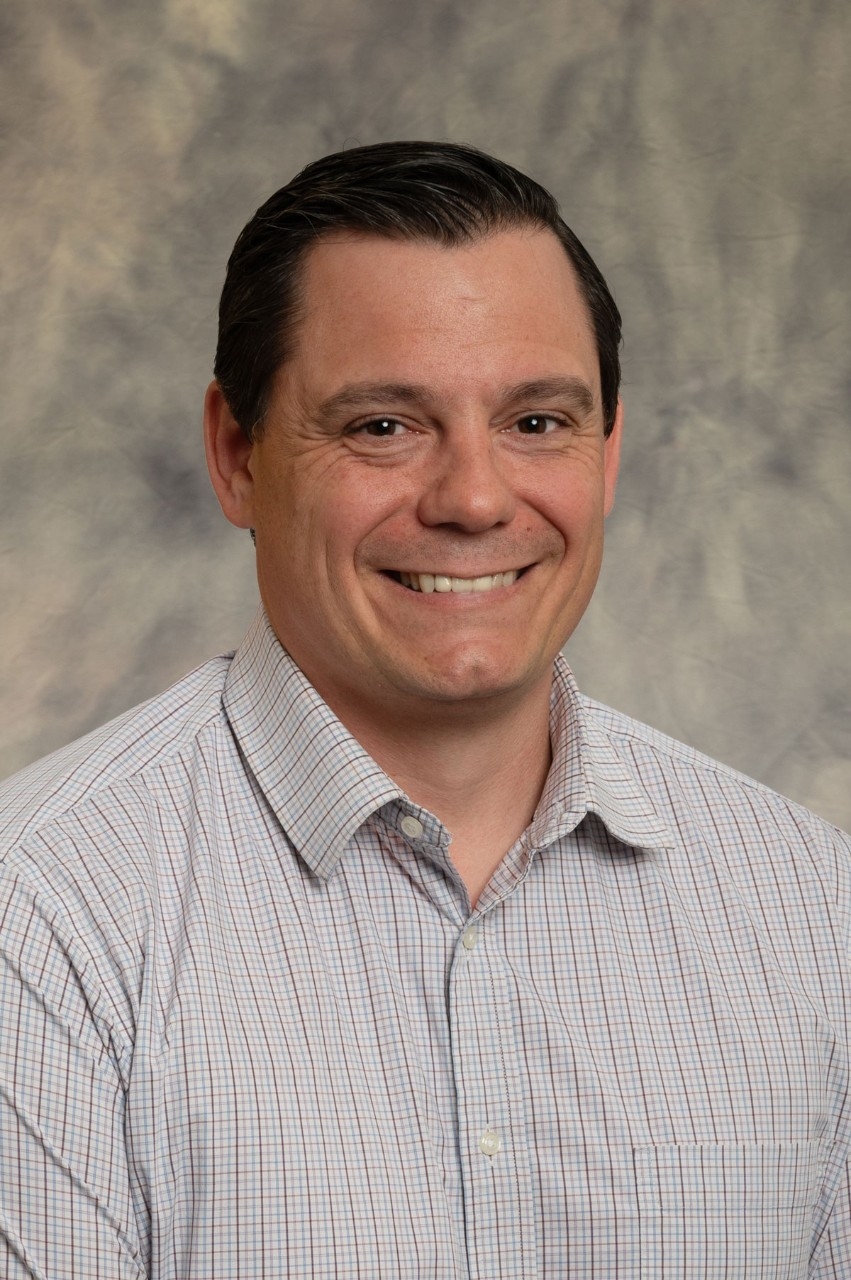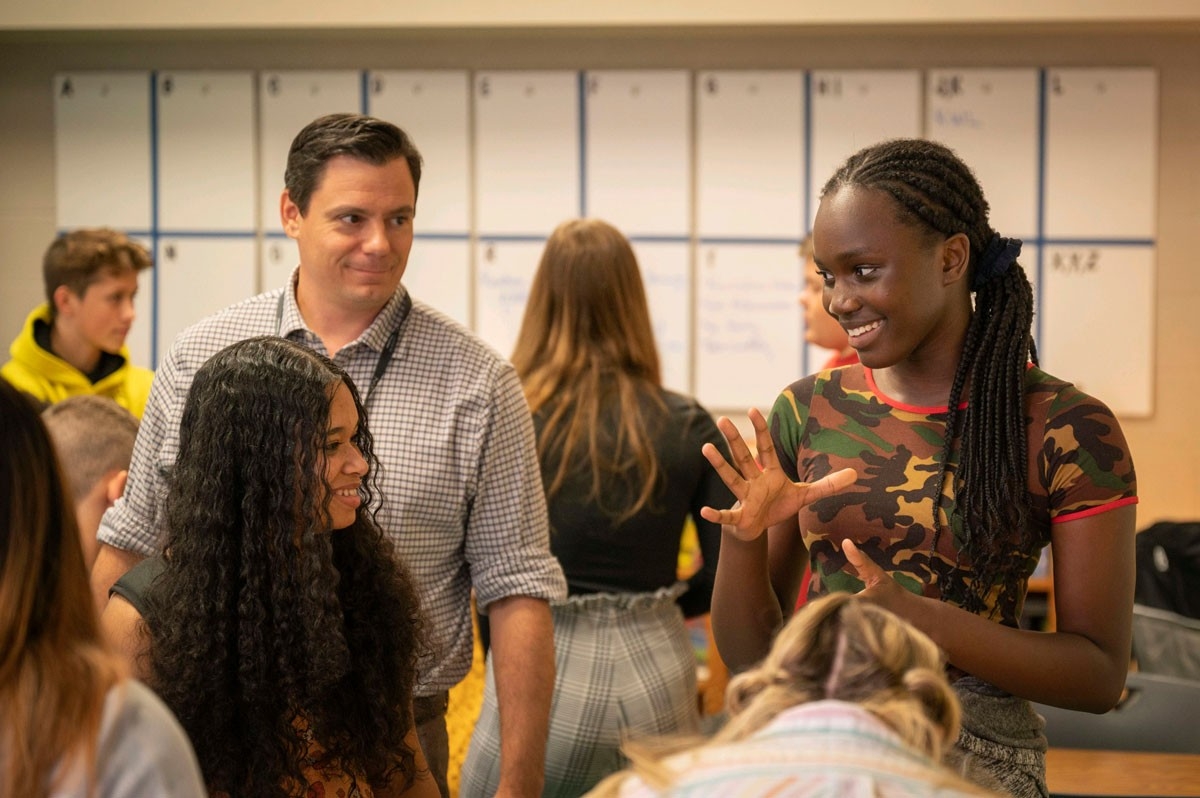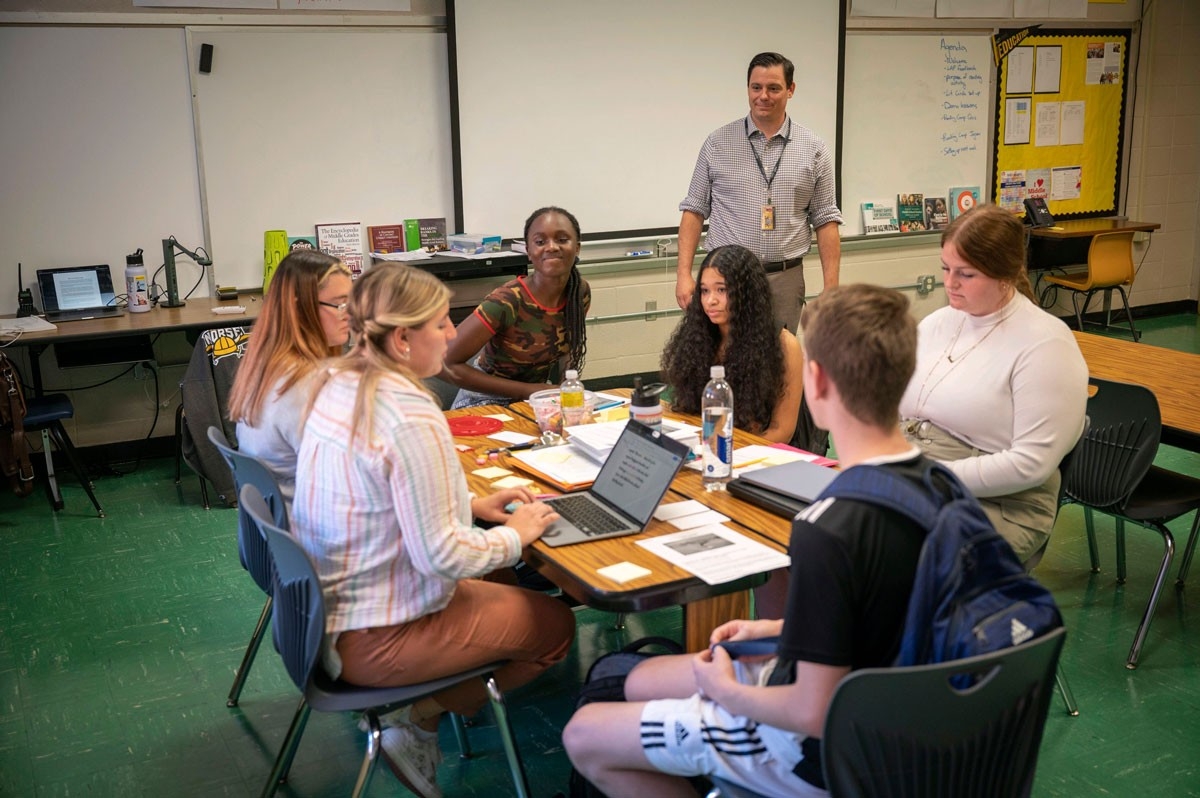
Teaching was always in the cards for Dr. Mike DiCicco.
“I always knew I was going to teach,” he says. “I just wasn’t sure what level.”
Dr. DiCicco initially pursued an undergraduate degree in philosophy from the University of South Florida. As he began substitute teaching and got experience in the classroom, he realized that he loved being with students and needed to go back to school to get his graduate degree.
So, he pursued a Master of Arts in Teaching with a focus in secondary English education with the intention of teaching high school students.
After he received his master's degree, a hiring freeze within his district got in the way, and he was forced to teach language arts to sixth, seventh and eighth grade students. But it all worked out, because that's when he fell in love with the middle grades, he says.
Dr. DiCicco loved being in the education field so much that he later went back to the University of South Florida and received his doctorate in curriculum and instruction in 2014.
His focus as a literacy educator is on middle and secondary, but that is something that most people may not fully understand.
"Many times, when people thing of literacy. they think of phonics and spelling and sight words and the like. In my part of the field, we typically focus on comprehension and motivation," he says. "Many people think that there is the switch from learning to read to reading to learn between elementary and middle school. That’s not correct because middle schoolers (and secondary) need to continue to learn how to read. It’s just they are reading different things for different purposes. Instead of reading a story, they are reading non-fiction. Instead of reading for fun, they are often asked to read to find information."


"Something I want to do is bridge the gap between graduation and a teacher’s first three years to help them build a solid foundation. Those first three years are not easy, and if we help make that transition easier then they are more likely to stay in the profession."